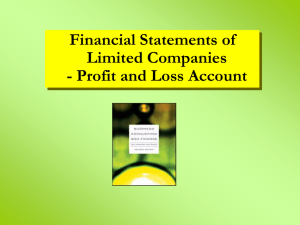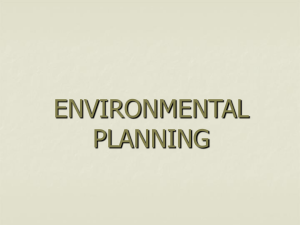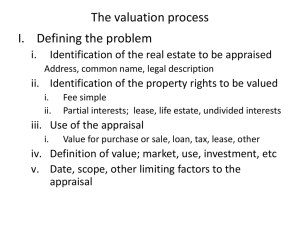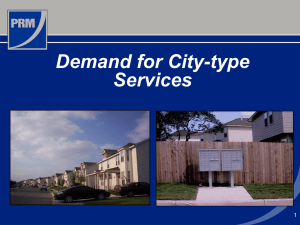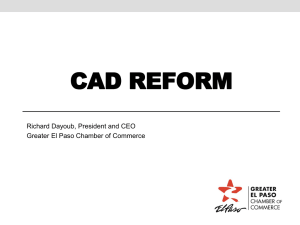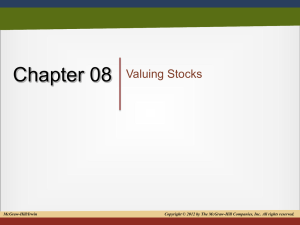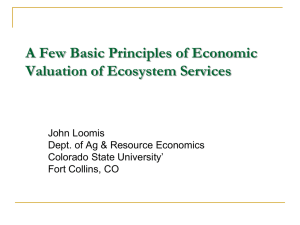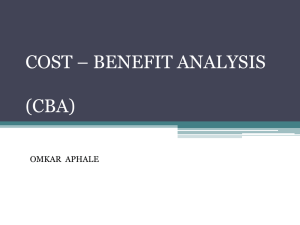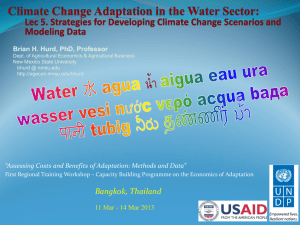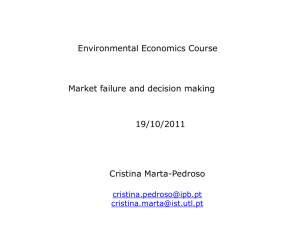Shared social values –part 2
advertisement
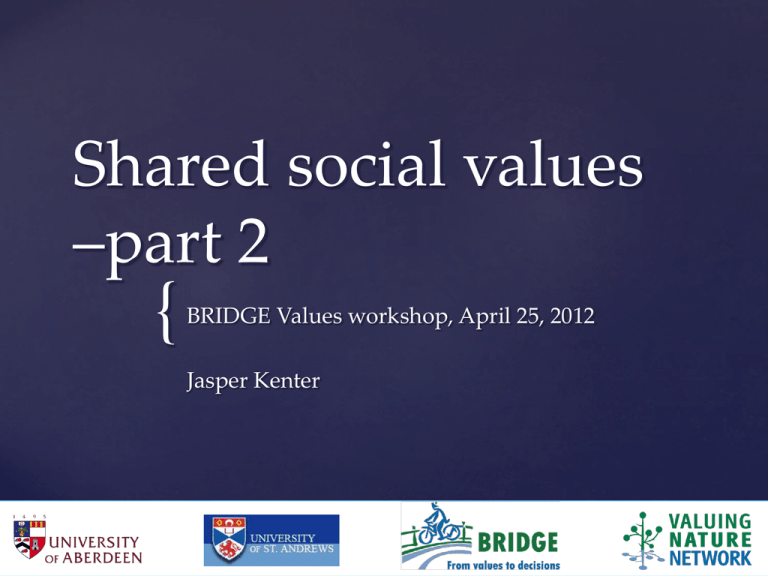
Shared social values
–part 2
{
BRIDGE Values workshop, April 25, 2012
Jasper Kenter
Develop a conceptual framework around
shared/social values and link this to
NEA/VNN framework
Develop research agenda around
shared/social values
Objectives
Social value(s)
Generic. Benefit(s) to society.
Economic. Economic value to the public; this can be
established through aggregating individual benefits
or willingness to pay, or by asking either
individuals or groups for a pre-aggregated social
value.
Socially constructed values. Values that have been
established through a democratic, deliberative,
participatory and/or social learning process. They
can be individual or group-based values
Shared social values
Benefits to society that all its members have access
to (e.g. clean air).
The value of such benefits.
What are they?
Shared values
Ethical values that are held in common,
collectively held guiding principles.
Cultural values
Shared values held by a particular culture or
society (also: societal values).
What are they?
Deeper held values
Values that ‘surface’ through a learning process (e.g.
a deliberative or participatory valuation process)
and are realised as more important guiding
principles than the ‘shallow’ values that dominated
before the start of the process.
Plural values
A diversity of different types of ethical values and
meta-values in a group or society.
A ‘bundle’ of different types of value evidence: e.g.
individual, social and ecological; consumer and
citizen values; ethical values and economic value.
What are they?
Drivers of Change
Natural Resources
Policy & management
Socio-economic
Environmental
(including external
pressures)
Air, land water, biodiversity
Ecosystem Services
(Supporting, Regulating, Provisioning, Cultural)
Other
Capital
Goods for people
(manufactured,
human, etc)
Collective shared
wellbeing values
Implementation
Regulation etc.
Individual
wellbeing values
Governance
Global, EU, State, Private sector and other actors
VALUATION
Scale, place and time sensitive
Non-monetary assessments
Monetary valuationzof
market & non-market goods
(quantitative & qualitative)
Economic (£)
Health (+/-)
Decisions
Shared social
values (/)
Drivers of Change
Natural Resources
Policy & management
Socio-economic
Environmental
(including external
pressures)
Air, land water, biodiversity
Ecosystem Services
(Supporting, Regulating, Provisioning, Cultural)
Other
Capital
Benefits for people
(manufactured,
human, etc)
Ecological
values
Risk,
uncertainty
Implementation
Regulation etc.
Governance and institutions
Global, EU, state, private sector and other actors
Cultural values
VALUATION
Scale, place and time sensitive
Non-monetary assessments
Monetary valuation of
market & non-market goods
(quantitative & qualitative)
z
Individual values
Economic
Shared values
Health & wellbeing
Decisions
Ethical values
Choices are made as a result of the process of
value construction
E.g. Advertising
Process of learning
Exchange of information
Awareness of consequences
Elicitation of deeper held value bases
Social process / deliberation
Construction of economic
value
Stern, 2000. Figure from Kenter et al, 2011.
Values-Beliefs-Norms model
Egoistic values
Meta values
Valuing
Valuation
outcomes
Consumer role
Deliberation
Utility
(Social)
Learning
process
Shared values
Citizen role
Social
benefit
Altruistic values
Consumer
preferences
‘Enlightened’
Consumer
preferences
Deeper held
values
Citizen
preferences
WTP
Aggregation
Fair price
Social
WTP
Social value
Wellbeing and ethical values
(non-monetary)
Biospheric values
Cultural/societal values assemblage
A conceptual model for valuation processes
?
Process of eliciting values impacts on outcomes
Learning and deliberation
Economists need ethics & social psychology:
Understanding how valuing works
Careful design of value elicitation process
Improve explanatory models for value outcomes
Only limited evidence on these processes in a
valuation context (Spash, 2008, 2009; Kenter et al, 2011)
How to aggregate shared values?
Interdisciplinary approach to
valuation
Group A:
Group B:
What is the relation between economic and ethical values
Values vs preferences, trade-offs etc.
How do shared values transcend the individual?
What are the implications for valuation and for the VNN/NEA
framework?
How do shared values relate to a. individual and group willingness to
pay, and group to social WTP?
How do shared values relate to wellbeing; public goods; other key
terms.
How are shared social values different to aggregated individual values?
What are the implications for valuation and for the VNN/NEA
framework?
Group C:
How can SSVs be measured at different scales?
What might be indicators?
What does/can multi-criteria assessment (MCA) actually measure i.e.
what type of values?
Same question for deliberative monetary valuation (DMV)
Are there methods that can be used beyond MCA and DMV to assess
shared social values?
Specific issues re. cultural services - e.g. how to assess sense of place?
What are the implications for valuation and for the VNN/NEA
framework?
Key questions & issues

